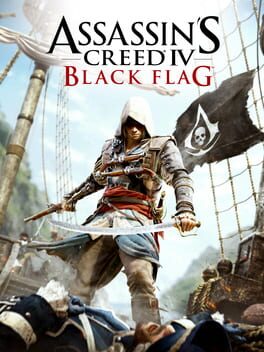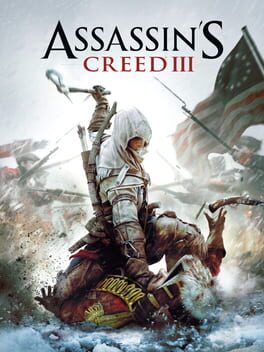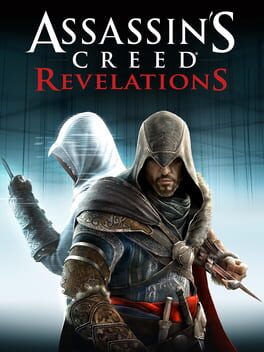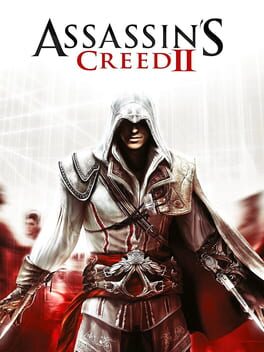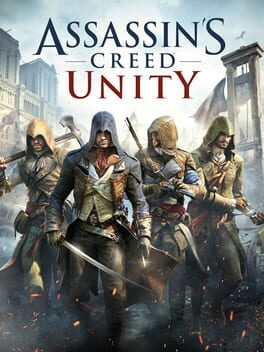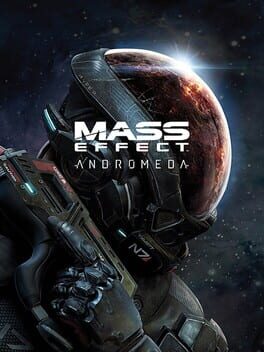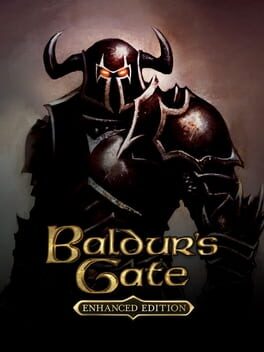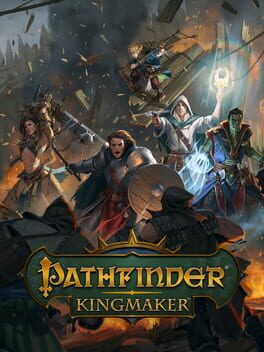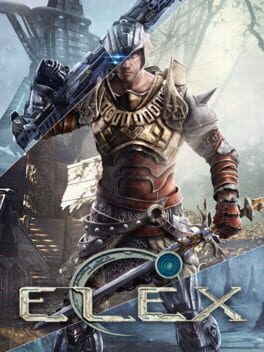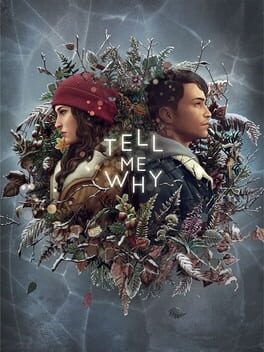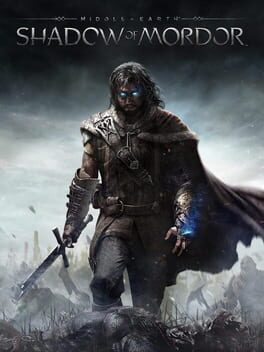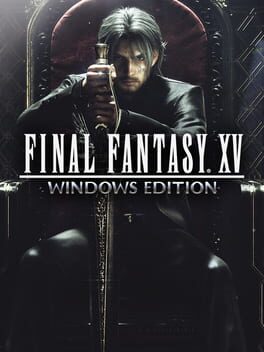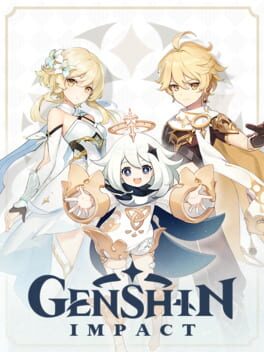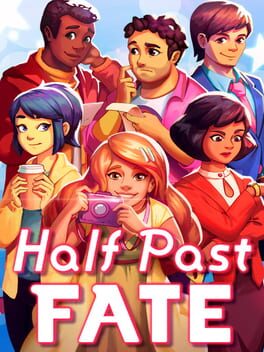LaserRaptor
BotW is a terrific achievement in reactive exploration gameplay. A set number of abilities you get at the beginning can be mix and matched with the elements in the open world to make your own dynamic fun.
"See that mountain? You can climb it" type of design philosophy has never been better and in some ways they topped Bethesda. In a genre struggling to make exploration worth while, BotW succeeds with flying colors owing to its traversal system.
Despite all my praise, the game's not without flaws. It has repetitive dungeons, awful side quests, a less than stellar weapon durability mechanic. Not to mention story and characters while charming are nothing to write home about.
"See that mountain? You can climb it" type of design philosophy has never been better and in some ways they topped Bethesda. In a genre struggling to make exploration worth while, BotW succeeds with flying colors owing to its traversal system.
Despite all my praise, the game's not without flaws. It has repetitive dungeons, awful side quests, a less than stellar weapon durability mechanic. Not to mention story and characters while charming are nothing to write home about.
Clear blue skies, salty water crashing against your ship, wind in your hair as you hum to the sea shanties of your crewmates. Open sea as far as the eye can see only distrubed by a few distant shores covered in dense forest and hills. Suddenly you catch a glimpse of a ship carrying a lot of cargo through your spyglass and greed overcomes you as you ready weapons to board them and loot them for all they are worth, what can stop you? This is the ultimate pirate fantasy and this what Black Flag sells.
I don’t usually start with the gameplay portion but it’s such an integral pillar to Black Flag’s experience, I have to. Atmosphere is another pillar that holds up Black Flag. Till today the game has the best pirate music I’ve ever heard and easily a close contender to having the best soundtrack in the franchise. This was a cross gen so the graphics still hold up well enough, the brilliant art direction definitely plays a part. I have to say Black Flag has my favorite character designs in Assassin’s Creed and it still surprises me how well they are animated in cutscenes. I will briefly rant about how assassin aspects didn’t fit narratively later but I happily admit the gameplay fits the pirate fantasy really well. The flashy combat of AC really adds to the swashbuckling feel of being a pirate and guns were improved from AC3. Also unlike AC3 the in game economy works really well to facilitate hunting which takes place both on land and water. The assassin tools might look a bit off on a pirate but they added gameplay variety for which I’m always grateful. As usual I loved using the rope dart and berserk darts. The combination of side activities like treasure hunting, whale hunting, mayan puzzles along with ship combat sold the pirate experience for me. I could elaborate on how well all the mechanics surrounding the ship is but it’s an experience anyone played the game would know well. Any game has yet to top that.
Despite all my glowing praise of the game systems I can’t say I was too impressed playing long after release. The game might have been impressive at release but in today’s open world dominated gaming industry, it’s hard to ignore the restrictions on exploration. Treasure hunting for money is not that important since it’s much easier to make money through ship battles and it really sucks that we can’t get unique gear out in the open world. There is no story side content to do out in the open world and technological limitation really puts a barrier on the illusion of freedom you have. I strongly believe Black Flag would have been a much better game if it was made in the style of modern open world RPG-lite AC games.
Now this doesn’t need a new paragraph but I will cause I want to emphasise how bad the quests are in this game. Easily more than half the story quests are infuriating tailing missions. They are slow and an incredibly lazy method of info dump but that’ll not all cause you have to keep in mind to not get detected by enemies while doing a slow parkour challenge. Making players juggle attention between gameplay and story at the same time is not challenging, it’s annoying. It’s not even like the info dumps you get are engaging. I used to think I didn’t mind tailing missions as they vary the type of quests, this game proved me wrong.
Now on to the narrative!
If you asked me to name the single best achievement of Black Flag, my answer would be the pirate fantasy. But if you let me name another thing, it would be Edward Kenway. Ezio might still be the most developed protagonist in the franchise but he had 3 games to go through that. He goes through as much development in a single game and is handled surprisingly competently.
Edward is greedy, hungry for freedom from civilization and hungry for a better life filled with riches. In this he embodies the pirate philosophy, if there is one. But there’s also another seed seated deep within his heart that never could grow, the desire to provide for his family. He carries that desire in his new life, as we see him try to desperately hold together the rag tag group of pirates in Nassau. Unfortunately freedom means nothing without safety and security, achieving which is incompatible with the former. This forms the basis of conflict within the group. Some want to boldly hold on freedom at the cost of even their life and others want to crawl back to safety which they fought to run away from. A fruitless endeavor like that is used to tie up Edward’s character arc as he realizes the cost of freedom and how much the people close to him means.
The conflict of civilization and complete freedom is a fascinating microcosm of the larger templar versus assassin philosophy but the story never really delves into the themes beyond the quite obvious parallel it’s drawing. Instead the narrative chose to focus on how characters caught in this crisis react. I didn’t mind that, all major characters had strong personalities and their views clear on the issue. I have to give special mention to the character designers coupled with voice actors that brought to life the major players in the story so well. I definitely think the structure of this narrative was a clear improvement over Revelations.
But at the same time I couldn’t help but feel unsatisfied. The conflict started before I even got to know the characters well. We explored the pirate life through gameplay more than narrative, though I have to admit the gameplay was really well designed for its time. But this is where I think the story is in conflict with itself. It wants the players to connect to the tragedy of the pirate cause while at the same time focusing on character over ideology. At least to me we got neither well fleshed out characters or themes.
Black Flag is a pirate game first and an assassin’s creed game second. I say this as both a praise and criticism since this duality permeates through every aspect of the game. As of the time of writing this there has been enough discourse on whether the game makes good on that duality.
Personally I never really cared all that much if it’s a “true” AC game since I believe having a unified creative vision for a long running franchise is near impossible when you don’t have the series creator in the team anymore. Not to mention the financial incentive of slapping on a well known franchise name on a game just to make money. Before playing I was interested in if the 2 parts manage to complement each other.
But as I come to the assassin part of the plot, I wish I could show through text the enormous sigh I let out. It exists tangential to the main pirate story to bridge it with the modern day aspect. It makes some effort to relate to the main themes by linking relevant characters, especially the wonderful Mary Read. I know many will say how this part of the story is essential to Edward’s character arc but I would strongly argue that this is the case only because it’s forcefully made so. Edward only has a passing interest in the assassins and never fully commits to it. He doesn’t need a cause in life because deep in his heart, he already cares for his family and friends. Losing that family causes a change in his heart, not seeing a cult of weirdo assassins. Not being essential isn’t a big issue, what bothers me most is this part of the narrative actively messes with the pacing. You’re constantly flip flopping between both stories and any momentum built up in the pirate story is put on hold to progress the assassin plot.
I can’t know what the narrative department really wanted to make but if I were to put on a tinfoil hat, I find a strong parallel of Abstergo forcing your in game character to forget about pirates and chase Isu artefacts with the narrative wanting to tell a pirate story but forced to make an assassin game.
I don’t usually start with the gameplay portion but it’s such an integral pillar to Black Flag’s experience, I have to. Atmosphere is another pillar that holds up Black Flag. Till today the game has the best pirate music I’ve ever heard and easily a close contender to having the best soundtrack in the franchise. This was a cross gen so the graphics still hold up well enough, the brilliant art direction definitely plays a part. I have to say Black Flag has my favorite character designs in Assassin’s Creed and it still surprises me how well they are animated in cutscenes. I will briefly rant about how assassin aspects didn’t fit narratively later but I happily admit the gameplay fits the pirate fantasy really well. The flashy combat of AC really adds to the swashbuckling feel of being a pirate and guns were improved from AC3. Also unlike AC3 the in game economy works really well to facilitate hunting which takes place both on land and water. The assassin tools might look a bit off on a pirate but they added gameplay variety for which I’m always grateful. As usual I loved using the rope dart and berserk darts. The combination of side activities like treasure hunting, whale hunting, mayan puzzles along with ship combat sold the pirate experience for me. I could elaborate on how well all the mechanics surrounding the ship is but it’s an experience anyone played the game would know well. Any game has yet to top that.
Despite all my glowing praise of the game systems I can’t say I was too impressed playing long after release. The game might have been impressive at release but in today’s open world dominated gaming industry, it’s hard to ignore the restrictions on exploration. Treasure hunting for money is not that important since it’s much easier to make money through ship battles and it really sucks that we can’t get unique gear out in the open world. There is no story side content to do out in the open world and technological limitation really puts a barrier on the illusion of freedom you have. I strongly believe Black Flag would have been a much better game if it was made in the style of modern open world RPG-lite AC games.
Now this doesn’t need a new paragraph but I will cause I want to emphasise how bad the quests are in this game. Easily more than half the story quests are infuriating tailing missions. They are slow and an incredibly lazy method of info dump but that’ll not all cause you have to keep in mind to not get detected by enemies while doing a slow parkour challenge. Making players juggle attention between gameplay and story at the same time is not challenging, it’s annoying. It’s not even like the info dumps you get are engaging. I used to think I didn’t mind tailing missions as they vary the type of quests, this game proved me wrong.
Now on to the narrative!
If you asked me to name the single best achievement of Black Flag, my answer would be the pirate fantasy. But if you let me name another thing, it would be Edward Kenway. Ezio might still be the most developed protagonist in the franchise but he had 3 games to go through that. He goes through as much development in a single game and is handled surprisingly competently.
Edward is greedy, hungry for freedom from civilization and hungry for a better life filled with riches. In this he embodies the pirate philosophy, if there is one. But there’s also another seed seated deep within his heart that never could grow, the desire to provide for his family. He carries that desire in his new life, as we see him try to desperately hold together the rag tag group of pirates in Nassau. Unfortunately freedom means nothing without safety and security, achieving which is incompatible with the former. This forms the basis of conflict within the group. Some want to boldly hold on freedom at the cost of even their life and others want to crawl back to safety which they fought to run away from. A fruitless endeavor like that is used to tie up Edward’s character arc as he realizes the cost of freedom and how much the people close to him means.
The conflict of civilization and complete freedom is a fascinating microcosm of the larger templar versus assassin philosophy but the story never really delves into the themes beyond the quite obvious parallel it’s drawing. Instead the narrative chose to focus on how characters caught in this crisis react. I didn’t mind that, all major characters had strong personalities and their views clear on the issue. I have to give special mention to the character designers coupled with voice actors that brought to life the major players in the story so well. I definitely think the structure of this narrative was a clear improvement over Revelations.
But at the same time I couldn’t help but feel unsatisfied. The conflict started before I even got to know the characters well. We explored the pirate life through gameplay more than narrative, though I have to admit the gameplay was really well designed for its time. But this is where I think the story is in conflict with itself. It wants the players to connect to the tragedy of the pirate cause while at the same time focusing on character over ideology. At least to me we got neither well fleshed out characters or themes.
Black Flag is a pirate game first and an assassin’s creed game second. I say this as both a praise and criticism since this duality permeates through every aspect of the game. As of the time of writing this there has been enough discourse on whether the game makes good on that duality.
Personally I never really cared all that much if it’s a “true” AC game since I believe having a unified creative vision for a long running franchise is near impossible when you don’t have the series creator in the team anymore. Not to mention the financial incentive of slapping on a well known franchise name on a game just to make money. Before playing I was interested in if the 2 parts manage to complement each other.
But as I come to the assassin part of the plot, I wish I could show through text the enormous sigh I let out. It exists tangential to the main pirate story to bridge it with the modern day aspect. It makes some effort to relate to the main themes by linking relevant characters, especially the wonderful Mary Read. I know many will say how this part of the story is essential to Edward’s character arc but I would strongly argue that this is the case only because it’s forcefully made so. Edward only has a passing interest in the assassins and never fully commits to it. He doesn’t need a cause in life because deep in his heart, he already cares for his family and friends. Losing that family causes a change in his heart, not seeing a cult of weirdo assassins. Not being essential isn’t a big issue, what bothers me most is this part of the narrative actively messes with the pacing. You’re constantly flip flopping between both stories and any momentum built up in the pirate story is put on hold to progress the assassin plot.
I can’t know what the narrative department really wanted to make but if I were to put on a tinfoil hat, I find a strong parallel of Abstergo forcing your in game character to forget about pirates and chase Isu artefacts with the narrative wanting to tell a pirate story but forced to make an assassin game.
2012
This review contains spoilers
Before there was AC Origins, promising a significant shift in gameplay, open world to explore and side activities to do, there was Assassin’s Creed 3 promising the same things. All this meant reinventing all the established mechanics from the ground up as well as pull through on an ambitious narrative set during the american revolution. Sadly the harsh realities of game development meant the director didn’t have enough time to complete his vision as he stated in a recent interview during the remaster’s release.
While I can’t say what this game could have been, I retain every right to dogpile on the myriads of issues of the game we got, especially in the narrative.
While the premise of this franchise is sci-fi, the beating heart is an ideological conflict between assassins and templars. AC1 touched on it while the Ezio trilogy forwent that for a simpler narrative, but AC3 is that 1 game in the franchise where it’s focused on most. I would have hoped for a philosophical argument but instead what we get is a clash of personalities. 2 men who strongly believe in their cause trying to win the other side over through any means possible. At a conceptual level I love what this story was going for. Connor, boy of immaturity and hope versus Haytham, a man of experience and wisdom, however misguided that may be. Connor trying to bring the two sides together while Haytham insistent on how an alliance is impossible and only his ideology is correct. A cynical view on how both sides are flawed.
But where all of this falls apart is Connor’s characterization and lack of a clear vision on his goals. Connor is naive and headstrong but the lack of a defining personality means he comes off as a petulant child. Naive becomes dumb and headstrong becomes arrogant. His conversations with Haytham while being the best part of the game, also highlight how much more well realized, charismatic and compelling Haytham is compared to him. Connor’s main goal throughout the narrative is one of revenge and while that can be a good enough foundation to write a character on, here it actively gets in the way of any theme or story elements. The american revolution might be the driving narrative, but it serves as little more than a theme park. We are moved from set piece to set piece highlighting important moments american history and Connor is dragged along for a ride in which he only has a passing interest. What’s more, even the revenge plot thread is undermined as Connor learns his target is innocent but goes after him anyway. In a well structured plot this could have been a moment of growth but Connor has so little attachment to the brotherhood or the revolution that it comes off as extremely contrived.
This is not to say Connor is the only flaw in the story, side characters Connor’s side get barely any developments and are left as bland instruments to move the story forward. You have side missions with named characters but beyond the initial encounter none of them manage to leave a lasting impression. The antagonists get barely any development beyond their brief deathbed speech either. We don’t even get a concrete understanding of the pitfalls of Connor’s actions. When the main theme of your story is highlighting the flaw in both factions, I find this inexcusable. Listening to the cut ending speech in AC3 makes me think that a lot might have been cut in this area.
Onto the gameplay, I found it to be a flawed but ambitious attempt at a new system. While mechanically the melee combat is as painfully simple as before, I do believe a lot of effort went into making them visually look as engaging as possible. Enemies attack much faster and you have a larger selection of tools to deal with them. The rope dart was a highlight for me. Before playing I was very sceptical of how the parkour would be outside intricately detailed cities but I’d say they successfully managed to make a simple yet free flowing tree parkour system. They lend well to the new extra combat tools too. Sadly the hunting system fails to make any impact on the game since in-game economy is the worst in the franchise. There’s absolutely no reason to buy new gear since your starting gear is enough.
Developing homestead feels pointless too since you don’t care about the inhabitants. Which brings me to my next point, this game adds side missions for the first time in the franchise and they are as bland as they can get. Main story missions are fairly good and varied from a gameplay standpoint however, so that saves the overall experience. I should also probably mention the ship combat but it was just a weird side activity to me, thankfully it was improved enough in the next title to be the best pirate game ever made.
While I can’t say what this game could have been, I retain every right to dogpile on the myriads of issues of the game we got, especially in the narrative.
While the premise of this franchise is sci-fi, the beating heart is an ideological conflict between assassins and templars. AC1 touched on it while the Ezio trilogy forwent that for a simpler narrative, but AC3 is that 1 game in the franchise where it’s focused on most. I would have hoped for a philosophical argument but instead what we get is a clash of personalities. 2 men who strongly believe in their cause trying to win the other side over through any means possible. At a conceptual level I love what this story was going for. Connor, boy of immaturity and hope versus Haytham, a man of experience and wisdom, however misguided that may be. Connor trying to bring the two sides together while Haytham insistent on how an alliance is impossible and only his ideology is correct. A cynical view on how both sides are flawed.
But where all of this falls apart is Connor’s characterization and lack of a clear vision on his goals. Connor is naive and headstrong but the lack of a defining personality means he comes off as a petulant child. Naive becomes dumb and headstrong becomes arrogant. His conversations with Haytham while being the best part of the game, also highlight how much more well realized, charismatic and compelling Haytham is compared to him. Connor’s main goal throughout the narrative is one of revenge and while that can be a good enough foundation to write a character on, here it actively gets in the way of any theme or story elements. The american revolution might be the driving narrative, but it serves as little more than a theme park. We are moved from set piece to set piece highlighting important moments american history and Connor is dragged along for a ride in which he only has a passing interest. What’s more, even the revenge plot thread is undermined as Connor learns his target is innocent but goes after him anyway. In a well structured plot this could have been a moment of growth but Connor has so little attachment to the brotherhood or the revolution that it comes off as extremely contrived.
This is not to say Connor is the only flaw in the story, side characters Connor’s side get barely any developments and are left as bland instruments to move the story forward. You have side missions with named characters but beyond the initial encounter none of them manage to leave a lasting impression. The antagonists get barely any development beyond their brief deathbed speech either. We don’t even get a concrete understanding of the pitfalls of Connor’s actions. When the main theme of your story is highlighting the flaw in both factions, I find this inexcusable. Listening to the cut ending speech in AC3 makes me think that a lot might have been cut in this area.
Onto the gameplay, I found it to be a flawed but ambitious attempt at a new system. While mechanically the melee combat is as painfully simple as before, I do believe a lot of effort went into making them visually look as engaging as possible. Enemies attack much faster and you have a larger selection of tools to deal with them. The rope dart was a highlight for me. Before playing I was very sceptical of how the parkour would be outside intricately detailed cities but I’d say they successfully managed to make a simple yet free flowing tree parkour system. They lend well to the new extra combat tools too. Sadly the hunting system fails to make any impact on the game since in-game economy is the worst in the franchise. There’s absolutely no reason to buy new gear since your starting gear is enough.
Developing homestead feels pointless too since you don’t care about the inhabitants. Which brings me to my next point, this game adds side missions for the first time in the franchise and they are as bland as they can get. Main story missions are fairly good and varied from a gameplay standpoint however, so that saves the overall experience. I should also probably mention the ship combat but it was just a weird side activity to me, thankfully it was improved enough in the next title to be the best pirate game ever made.
This review contains spoilers
Revelations is the 3rd game in the Ezio trilogy and while it feels like just a few incremental upgrades to the firmly established AC formula, internally it was the first game not helmed by the series creator Patrice Desilets. Instead it was the first game written by now fan favorite writer Darby Mcdevitt.
Weirdly my first and most deeply rooted memory of the game is not from the game itself but rather the trailer.It sets up the premise, an old but determined Ezio traveling to the forgotten assassin home of Masyaf to seek the wisdom left behind by his ancestor Altair. He knows not what awaits him, knowledge or death. Decades of skill and wisdom his only companion. The music accompanied by excellent scene direction left quite a mark on me.
On to the actual game, and the question if it lives up to the premise. Yes and no...mostly no. At the end of the game, Sophia asks what the creed means and Ezio answers:
“The creed is merely an observation on the nature of reality. To say that nothing is true is to realize that the foundations of society are fragile and that we must be the shepherds of our own civilization. To say that everything is permitted is to understand that we are the architects of our actions and that we must live with our consequences, whether glorious or tragic.”
This was Ezio’s revelation and backtracking from this, it’s easy to understand why the setting of Constantinople was chosen. When Ezio arrives there, he calls the city by an old name but is quickly corrected by others as to what its current name is. A city with a long history built on the back of political and religious struggle of many years. A land rife with strife but still maintaining a fragile peace. Through Revelation’s story we get to see how much the actions and both its leaders and Ezio matters to maintain that peace. A small but colorful cast of characters that we meet is a solid foundation to base the structure of this narrative theme. But this is where my praises end.
While the characters are charming and some carry the potential of depth, every single one of them lack enough screen time to fully explore them. You have 2 plots running in parallel, one of political struggle in Constantinople and one of Ezio hunting Altair’s memories, both having nothing to do with each other and that’s not mentioning the brief but significant portion of the game you play as Altair in his last days. All 3 aspects of the game not only constantly break the pace of the story but they take away time from each other that would have been better spent fleshing out the characters.
The final nail in the coffin is Ezio himself, he is old and wiser which complements this entire character act through 3 games but there is very little development in the game itself. He is supposed to learn from the wisdom of Altair’s memories but there’s barely anything there. He is the same person at the end as he was at the beginning of Revelations. His vague understanding of the creed’s meaning was not gradually earned throughout the game but rather made to coincide with the theme of the story.
Coming to the gameplay section, there’s not much to say. From the outside the game makes two bold new additions in the form of multiple bomb types and hook-blade, but both are underutilized to the point where they might even not exist. Thankfully the city design of Constantinople is great as ever, and the solid foundation of exploration and combat set by AC2 is still present.I did feel that the level design for parkour wasn’t as good as previous games but I can’t confirm that now. There were some set piece driven tombs to explore which were the highlight of the game to me.
I personally had played Revelations at a time where my Assassin’s Creed gameplay fatigue had set in and thus was not able to enjoy it as much as I would have if it was still fresh to me. But even considering that I feel the game suffered from small development time and a poor execution of ideas. Sadly this is going to be a trend going forward in the series.
Weirdly my first and most deeply rooted memory of the game is not from the game itself but rather the trailer.It sets up the premise, an old but determined Ezio traveling to the forgotten assassin home of Masyaf to seek the wisdom left behind by his ancestor Altair. He knows not what awaits him, knowledge or death. Decades of skill and wisdom his only companion. The music accompanied by excellent scene direction left quite a mark on me.
On to the actual game, and the question if it lives up to the premise. Yes and no...mostly no. At the end of the game, Sophia asks what the creed means and Ezio answers:
“The creed is merely an observation on the nature of reality. To say that nothing is true is to realize that the foundations of society are fragile and that we must be the shepherds of our own civilization. To say that everything is permitted is to understand that we are the architects of our actions and that we must live with our consequences, whether glorious or tragic.”
This was Ezio’s revelation and backtracking from this, it’s easy to understand why the setting of Constantinople was chosen. When Ezio arrives there, he calls the city by an old name but is quickly corrected by others as to what its current name is. A city with a long history built on the back of political and religious struggle of many years. A land rife with strife but still maintaining a fragile peace. Through Revelation’s story we get to see how much the actions and both its leaders and Ezio matters to maintain that peace. A small but colorful cast of characters that we meet is a solid foundation to base the structure of this narrative theme. But this is where my praises end.
While the characters are charming and some carry the potential of depth, every single one of them lack enough screen time to fully explore them. You have 2 plots running in parallel, one of political struggle in Constantinople and one of Ezio hunting Altair’s memories, both having nothing to do with each other and that’s not mentioning the brief but significant portion of the game you play as Altair in his last days. All 3 aspects of the game not only constantly break the pace of the story but they take away time from each other that would have been better spent fleshing out the characters.
The final nail in the coffin is Ezio himself, he is old and wiser which complements this entire character act through 3 games but there is very little development in the game itself. He is supposed to learn from the wisdom of Altair’s memories but there’s barely anything there. He is the same person at the end as he was at the beginning of Revelations. His vague understanding of the creed’s meaning was not gradually earned throughout the game but rather made to coincide with the theme of the story.
Coming to the gameplay section, there’s not much to say. From the outside the game makes two bold new additions in the form of multiple bomb types and hook-blade, but both are underutilized to the point where they might even not exist. Thankfully the city design of Constantinople is great as ever, and the solid foundation of exploration and combat set by AC2 is still present.I did feel that the level design for parkour wasn’t as good as previous games but I can’t confirm that now. There were some set piece driven tombs to explore which were the highlight of the game to me.
I personally had played Revelations at a time where my Assassin’s Creed gameplay fatigue had set in and thus was not able to enjoy it as much as I would have if it was still fresh to me. But even considering that I feel the game suffered from small development time and a poor execution of ideas. Sadly this is going to be a trend going forward in the series.
2009
Assassin’s Creed 2 is the 2nd game I played after Rogue and it was what solidified my love for the franchise. As such it would be very hard for me to separate my love and nostalgia for the game from a nuanced look into its qualities.
“It is a good life we lead brother. May it never change and may it never change us.”
An exchange between the Firenze brothers followed by the hauntingly beautiful soundtrack of Ezio’s Family was an introduction that has been etched into my memory forever. A simplicity and masterful execution shown by this introduction is emblematic of the whole game.
Compared to the first game the story the game tackles is a simpler good vs evil one. Templars were unrepeatable assholes here driven by greed, not a worthy opposition to assassin ideology. Supposedly a low point in Templar history. Instead what carries this story is the charm of Ezio and the supporting cast, especially the ever lovable Leonardo. A revenge story at its heart, the story adds layers by making it about one of growth, for both our protagonist and the creed. How ever simple it may be, I don't remember ever losing interest.
In terms of gameplay, I never considered melee combat good in this franchise. But something I distinctly remember how good the progression was. You don’t start out as a master assassin like most games but rather slowly unlock hidden blade abilities throughout the entire game. This might not sound like much, but we have to keep in mind that this was the 2nd game in the franchise where all the systems that we take for granted were still very fresh. It was fresh to me as well since it was also my 2nd game.
The main appeal for me was the parkour. And what a treat it was to run around in renaissance Italy. The really slow parkour from 1 was possibly polished up cause despite having precise controls, it never felt slow to me back then. I still remember the glee I felt whenever I had to climb a tall building or encounter one of those parkour puzzles. Even now I consider 2 and Bortherhood's map to be the best in terms of traversal, only contested by Unity. And the music, my god it’s ethereal. Jasper Kyd has yet to top his work in this game in my opinion. Even now all these years later I occasionally listen to them.
To this day AC2 for me remains the perfect marriage of story, atmosphere and gameplay. It must realistically have aged with how much technology has evolved since then but in my memory it’s evergreen.
“It is a good life we lead brother. May it never change and may it never change us.”
An exchange between the Firenze brothers followed by the hauntingly beautiful soundtrack of Ezio’s Family was an introduction that has been etched into my memory forever. A simplicity and masterful execution shown by this introduction is emblematic of the whole game.
Compared to the first game the story the game tackles is a simpler good vs evil one. Templars were unrepeatable assholes here driven by greed, not a worthy opposition to assassin ideology. Supposedly a low point in Templar history. Instead what carries this story is the charm of Ezio and the supporting cast, especially the ever lovable Leonardo. A revenge story at its heart, the story adds layers by making it about one of growth, for both our protagonist and the creed. How ever simple it may be, I don't remember ever losing interest.
In terms of gameplay, I never considered melee combat good in this franchise. But something I distinctly remember how good the progression was. You don’t start out as a master assassin like most games but rather slowly unlock hidden blade abilities throughout the entire game. This might not sound like much, but we have to keep in mind that this was the 2nd game in the franchise where all the systems that we take for granted were still very fresh. It was fresh to me as well since it was also my 2nd game.
The main appeal for me was the parkour. And what a treat it was to run around in renaissance Italy. The really slow parkour from 1 was possibly polished up cause despite having precise controls, it never felt slow to me back then. I still remember the glee I felt whenever I had to climb a tall building or encounter one of those parkour puzzles. Even now I consider 2 and Bortherhood's map to be the best in terms of traversal, only contested by Unity. And the music, my god it’s ethereal. Jasper Kyd has yet to top his work in this game in my opinion. Even now all these years later I occasionally listen to them.
To this day AC2 for me remains the perfect marriage of story, atmosphere and gameplay. It must realistically have aged with how much technology has evolved since then but in my memory it’s evergreen.
To start with the pros, the game looks gorgeous, specially the lighting; Combat and crafting has more depth than previous games and is quite fun; The companions are fleshed out well enough with party banter; On some occasions you'll be greeted with awe inducing scenes.
Most bugs are fixed by now and facial animations are not as shit anymore, speaks volumes when I list that as a positive.
With those out of the way, the game falls short in everything, even in the pros I mentioned. The story and lore is painfully unimaginative and takes way too much inspiration from the older games. The antagonist is a cartoony villain who fails to make any impression, ME 2 did it better.
Quest design while not bad, failed to impress me. Most boil down to fighting recycled enemy or scanning items. Some do have interesting sub plots but that made searching for them more disappointing when most end up bland and repetitive. Romance quests range from meh to okay.
Crafting has too many steps with a very unintuitive menu. I would argue cover shooters doesn't work well in open world games.
Despite landscapes looking gorgeous, you'll mostly be travelling in various types of bland desserts. Apart from a few locations nothing feels "alien". Facial animations while not comically bad, is still not good.
For a game about adventure across an uncharted world and taking risks, the developers played it too safe and made a disappointing entry in an once excellent franchise. Play it if you only care about combat and eye candy texture/ lighting.
Most bugs are fixed by now and facial animations are not as shit anymore, speaks volumes when I list that as a positive.
With those out of the way, the game falls short in everything, even in the pros I mentioned. The story and lore is painfully unimaginative and takes way too much inspiration from the older games. The antagonist is a cartoony villain who fails to make any impression, ME 2 did it better.
Quest design while not bad, failed to impress me. Most boil down to fighting recycled enemy or scanning items. Some do have interesting sub plots but that made searching for them more disappointing when most end up bland and repetitive. Romance quests range from meh to okay.
Crafting has too many steps with a very unintuitive menu. I would argue cover shooters doesn't work well in open world games.
Despite landscapes looking gorgeous, you'll mostly be travelling in various types of bland desserts. Apart from a few locations nothing feels "alien". Facial animations while not comically bad, is still not good.
For a game about adventure across an uncharted world and taking risks, the developers played it too safe and made a disappointing entry in an once excellent franchise. Play it if you only care about combat and eye candy texture/ lighting.
Isometric crpgs have come a long way since Baldur's Gate 1 pioneered the genre 2 decades back and its a wonder that it still holds up in the Enhanced Edition re-release.
A design priority that sets BG apart from the rest of the genre is the focus in free form exploration and roleplaying over a strong narrative hook. Being story light, it might turn away some players but at the same time it give greater freedom to craft your own own story. There are numerous optional areas to explore and companions to find, something that offsets the companion death mechanic. Doesn't help the lack of character depth in companions though.
Is it as good as modern crpgs? In terms of narrative absolutely not, but the gameplay still works if you can get into the old D&D rules.
P.S. fans remade this game into the Neverwinter Nights 2 engine and I'd recommend playing that since I personally like the gameplay there more.
A design priority that sets BG apart from the rest of the genre is the focus in free form exploration and roleplaying over a strong narrative hook. Being story light, it might turn away some players but at the same time it give greater freedom to craft your own own story. There are numerous optional areas to explore and companions to find, something that offsets the companion death mechanic. Doesn't help the lack of character depth in companions though.
Is it as good as modern crpgs? In terms of narrative absolutely not, but the gameplay still works if you can get into the old D&D rules.
P.S. fans remade this game into the Neverwinter Nights 2 engine and I'd recommend playing that since I personally like the gameplay there more.
Pathfinder Kingmaker is a CRPG that feels pride in it's table top roots and tries hard to emulate that feeling while taking inspiration from more contemporary CRPGs and I'd say they mostly succeeded in that vision with some hiccups.
1st the positives :
• The character creation is very deep, possibly overwhelming for new players. But once you get a hold of it, it's very rewarding with how much build variety can be done.
• The Pathfinder table-top rule set makes for very engaging battles. It used to be very hard at launch, relying more on rng luck but after several patches I think it's quite fair now. Using proper buffs, feats and spells to counter the enemy strength never stops being exciting.
• Without going into spoilers I'd say the story while nothing groundbreaking works well enough to keep the player invested. Each story arc has enough plot intrigue to have it's own game but since there's so many, individually they feel a bit shallow. Despite this complaint I would argue that it works to serve the larger narrative.
• Companion characters have actual personality with history and are not just stand ins for their race, this I greatly appreciated. I loved the camp side banter and how they can interject during story moments. Having to have them in party for romance to trigger properly was nice too.
• Kingdom management mini game is quite fun with choices than can have consequences with the companions. Watching your city having the buildings you built show up in the map screen never got old for me. Small side quests from unlocked locations were nice too.
• The visual design is gorgeous with perfect use of special effects. Using powerful AOE spells never got old. But I wish the game had camera rotation like D:OS2.
• Voice acting for the most part was great and added to the immersion. Though I wish important story dialogues weren't half voiced, either keep it silent or voice it fully. Having to hear half dialogues in great voice acting and having to imagine the rest took me out of experience slightly, though this is a minor nitpick.
• The music, my god. Inor Zur is a genius and it shows. Every tracks fits the game ambience just right and quite a few of those I would listen to ousdide of the game too.
Now for the parts that in my opinion can be improved:
• 1st point has to be bugs. I'm glad how much the devs have worked to fix the bugs and balance issues of the game but still there is some work to be done. I ran into 2 broken quest that was supposed to be fixed and a few visual glitches here and there. Saving takes too much time and it needs to be fixed, taking 7-8 seconds for a quick save during later parts of the game is unacceptable. Fortunately there's a mod.
• Although visually gorgeous, I'm not that impressed with level design. Specially during earlier positions of the game you get kinda bland maps purely carried by the quest story you have in mind instead of visual story telling. 1st World was a breath of fresh air but even that went stale soon. Also I feel they are too open and lack strategic use like in POE, but it will be a very subjective opinion. Unique locations aside from main quest that have optional bosses often reuses same locations. Maybe this where the kickstarter budget shows most.
• The companions need more flavor text to flesh them out. After you initially meet and talk with them, there's nothing to talk about for 20-30 hours before their companion quest kicks in and even then it's just a couple of lines at most. At the least they should have dialogues after each important story event. Also longer dungeons needs some side story in the form of notes or something. Idk about others but fighting similar enemies over and over without discovering fun stuff about the location is boring. I hope the story's better in the future games too.
• There are unsual difficulty spikes in the game, specially towards the end. Hopefully will get more balance patches.
• A personal grievance but I dislike the over reliance on RNG in everything. I know that's how table top games are probably but on higher difficulties you are forced to reload not because you did something wrong but because the enemy just had a higher roll than you. That is not fun. I'm so glad DOS2 moved away from it although armor system needs some fixing.
Overall it's very fun game and a solid entry into the CRPG genre.
1st the positives :
• The character creation is very deep, possibly overwhelming for new players. But once you get a hold of it, it's very rewarding with how much build variety can be done.
• The Pathfinder table-top rule set makes for very engaging battles. It used to be very hard at launch, relying more on rng luck but after several patches I think it's quite fair now. Using proper buffs, feats and spells to counter the enemy strength never stops being exciting.
• Without going into spoilers I'd say the story while nothing groundbreaking works well enough to keep the player invested. Each story arc has enough plot intrigue to have it's own game but since there's so many, individually they feel a bit shallow. Despite this complaint I would argue that it works to serve the larger narrative.
• Companion characters have actual personality with history and are not just stand ins for their race, this I greatly appreciated. I loved the camp side banter and how they can interject during story moments. Having to have them in party for romance to trigger properly was nice too.
• Kingdom management mini game is quite fun with choices than can have consequences with the companions. Watching your city having the buildings you built show up in the map screen never got old for me. Small side quests from unlocked locations were nice too.
• The visual design is gorgeous with perfect use of special effects. Using powerful AOE spells never got old. But I wish the game had camera rotation like D:OS2.
• Voice acting for the most part was great and added to the immersion. Though I wish important story dialogues weren't half voiced, either keep it silent or voice it fully. Having to hear half dialogues in great voice acting and having to imagine the rest took me out of experience slightly, though this is a minor nitpick.
• The music, my god. Inor Zur is a genius and it shows. Every tracks fits the game ambience just right and quite a few of those I would listen to ousdide of the game too.
Now for the parts that in my opinion can be improved:
• 1st point has to be bugs. I'm glad how much the devs have worked to fix the bugs and balance issues of the game but still there is some work to be done. I ran into 2 broken quest that was supposed to be fixed and a few visual glitches here and there. Saving takes too much time and it needs to be fixed, taking 7-8 seconds for a quick save during later parts of the game is unacceptable. Fortunately there's a mod.
• Although visually gorgeous, I'm not that impressed with level design. Specially during earlier positions of the game you get kinda bland maps purely carried by the quest story you have in mind instead of visual story telling. 1st World was a breath of fresh air but even that went stale soon. Also I feel they are too open and lack strategic use like in POE, but it will be a very subjective opinion. Unique locations aside from main quest that have optional bosses often reuses same locations. Maybe this where the kickstarter budget shows most.
• The companions need more flavor text to flesh them out. After you initially meet and talk with them, there's nothing to talk about for 20-30 hours before their companion quest kicks in and even then it's just a couple of lines at most. At the least they should have dialogues after each important story event. Also longer dungeons needs some side story in the form of notes or something. Idk about others but fighting similar enemies over and over without discovering fun stuff about the location is boring. I hope the story's better in the future games too.
• There are unsual difficulty spikes in the game, specially towards the end. Hopefully will get more balance patches.
• A personal grievance but I dislike the over reliance on RNG in everything. I know that's how table top games are probably but on higher difficulties you are forced to reload not because you did something wrong but because the enemy just had a higher roll than you. That is not fun. I'm so glad DOS2 moved away from it although armor system needs some fixing.
Overall it's very fun game and a solid entry into the CRPG genre.
2017
Elex is an action RPG that takes upon the daunting task of combining sci-fi with medieval fantasy and surprisingly manage to pull it off. As long as you can get over the very high amount of AA jank, this an ambitious title worth experiencing.
Positives:
• Quest design is excellent. Almost always there are multiple ways to complete a quest that help in roleplaying and I don't remember there being any uninteresting fetch quest. There are 3 main factions to choose to from and they provide very different abilities, so lots of room for replayability.
• The exploration is rewarding and has enough unique locations & loot. This is the closest you'll come to Bethesda's level and damn impressive for a AA game. Despite some low poly areas, the world is beautiful with perfect use of lighting to bring out the atmosphere. The verticality of the map design is really well done and the jet-pack allows for fun traversal.
• Player progression is one the best I've seen. You start as a complete weakling and the world feels genuinely dangerous as you try to avoid almost every enemy. 1st time you get companion feels like huge rewards mechanically. You take your sweet time to level up and can get frustrating and it indirectly hinders your exploration but keep at and you'll be rewarded.
• The world building and story can feel a bit silly in the beginning but as more of the game opens up, you see the genuine effort the devs have put in to make a believable immersive world.
Negatives:
• Combat. Don't let fanboys fool you, it's terrible, at least for 2/3rd of the game. Hitboxes are some of the worst I've seen in past decade. Melee combat plays like a poor man's Witcher 3 so get a gun as soon as possible or join a faction to get magic/tech abilities. For a game that prioritizes stamina management, the devs made an inexplicable decision to give only bipedal enemies stamina but 70% of the enemies you fight are monsters with no stamina requirement.
• Companion AI is trash. A significant portion of the time they stand around while you get mauled by beasts. Do yourself a favor and stick to the companion Duras, he has the most aggresive AI and thus the least bad.
• Although enemy visual designs are very good, most are actually just reskins of earlier enemies with more damage. This wouldn't have been a problem if not for the fact that you fight enemies by learning they attack pattern and when newer enemies have the exact same pattern as earlier ones, it sucks out the joy of discovering something new.
Overall Elex is an ambitious game that stumbles in almost every area. Despite that if you can look past the AA jank, it's a very enjoyable experience. Certainly a much better roleplaying experience than Bethesda titles. Here's hoping that Piranha Bytes will actually improve for a change since Gothic in the inevitable Elex sequel.
Positives:
• Quest design is excellent. Almost always there are multiple ways to complete a quest that help in roleplaying and I don't remember there being any uninteresting fetch quest. There are 3 main factions to choose to from and they provide very different abilities, so lots of room for replayability.
• The exploration is rewarding and has enough unique locations & loot. This is the closest you'll come to Bethesda's level and damn impressive for a AA game. Despite some low poly areas, the world is beautiful with perfect use of lighting to bring out the atmosphere. The verticality of the map design is really well done and the jet-pack allows for fun traversal.
• Player progression is one the best I've seen. You start as a complete weakling and the world feels genuinely dangerous as you try to avoid almost every enemy. 1st time you get companion feels like huge rewards mechanically. You take your sweet time to level up and can get frustrating and it indirectly hinders your exploration but keep at and you'll be rewarded.
• The world building and story can feel a bit silly in the beginning but as more of the game opens up, you see the genuine effort the devs have put in to make a believable immersive world.
Negatives:
• Combat. Don't let fanboys fool you, it's terrible, at least for 2/3rd of the game. Hitboxes are some of the worst I've seen in past decade. Melee combat plays like a poor man's Witcher 3 so get a gun as soon as possible or join a faction to get magic/tech abilities. For a game that prioritizes stamina management, the devs made an inexplicable decision to give only bipedal enemies stamina but 70% of the enemies you fight are monsters with no stamina requirement.
• Companion AI is trash. A significant portion of the time they stand around while you get mauled by beasts. Do yourself a favor and stick to the companion Duras, he has the most aggresive AI and thus the least bad.
• Although enemy visual designs are very good, most are actually just reskins of earlier enemies with more damage. This wouldn't have been a problem if not for the fact that you fight enemies by learning they attack pattern and when newer enemies have the exact same pattern as earlier ones, it sucks out the joy of discovering something new.
Overall Elex is an ambitious game that stumbles in almost every area. Despite that if you can look past the AA jank, it's a very enjoyable experience. Certainly a much better roleplaying experience than Bethesda titles. Here's hoping that Piranha Bytes will actually improve for a change since Gothic in the inevitable Elex sequel.
2020
Tell me Why is the latest game by this studio and I'm honestly feeling like Life is Strange 1 was a lighting in a bottle.
I won't dissuade anyone from trying this since it's not a completely bad game, but it also lacks anything special that makes games like these work. The visuals are pretty and technically an improvement over previous games but lack any distinct style. I don't remember a single music track from the game.
But maybe the story or characters pull their weight? It had some potential, I was actually intrigued by the first episode. But it commits the worst mistake but not having a conflict worth investing in. The siblings despite some disagreements get along too well, any new conflict that comes up gets resolved too fast and the over arching mystery has such an lackluster conclusion that it negates any build up it had previously.
I get that the story is tackling a very sensitive topic but it lacks teeth to hook you.
I won't dissuade anyone from trying this since it's not a completely bad game, but it also lacks anything special that makes games like these work. The visuals are pretty and technically an improvement over previous games but lack any distinct style. I don't remember a single music track from the game.
But maybe the story or characters pull their weight? It had some potential, I was actually intrigued by the first episode. But it commits the worst mistake but not having a conflict worth investing in. The siblings despite some disagreements get along too well, any new conflict that comes up gets resolved too fast and the over arching mystery has such an lackluster conclusion that it negates any build up it had previously.
I get that the story is tackling a very sensitive topic but it lacks teeth to hook you.
My 3/5 star rating is for the game upto Alitissia. If you don't bother about the overarching plot too much, the game upto that is pretty good at giving a road trip with the boys feel. I recommend playing only upto that and the companion dlcs. Altissia's end boss fight looks better than the actual final one anyway.
My rating for the rest of the game is 1/5. Avoid it cause even with all updates it's a complete cluster fuck.
My rating for the rest of the game is 1/5. Avoid it cause even with all updates it's a complete cluster fuck.
2020
While the writing's shallow and tropey (though I can see kids enjoying it) there's legitimate effort put into the gameplay, in both exploration and combat which elevate it above being just a BotW clone. Alas it is also a gatcha waifu collector which makes it a grindy chore to play.
Gatcha games should burn in the pits of hell.
Gatcha games should burn in the pits of hell.
2020
Cute but hollow.
I like the concept of the game a lot, a romcom featuring many playable characters whose lives intertwine. Problem is that instead of fleshing out the characters, you are left with 1 defining characteristic/quirk for each character and throughout the game you deal with cute but rather tiresome quests. I played 7/8 out of 12 chapters and just couldn't be bothered to finish as I wasn't invested in any character.
The art style is quite unique and honestly hard carried the game for me. Music was nice but not enough tracks. Would like see some other game of this style but with better writing.
I like the concept of the game a lot, a romcom featuring many playable characters whose lives intertwine. Problem is that instead of fleshing out the characters, you are left with 1 defining characteristic/quirk for each character and throughout the game you deal with cute but rather tiresome quests. I played 7/8 out of 12 chapters and just couldn't be bothered to finish as I wasn't invested in any character.
The art style is quite unique and honestly hard carried the game for me. Music was nice but not enough tracks. Would like see some other game of this style but with better writing.

